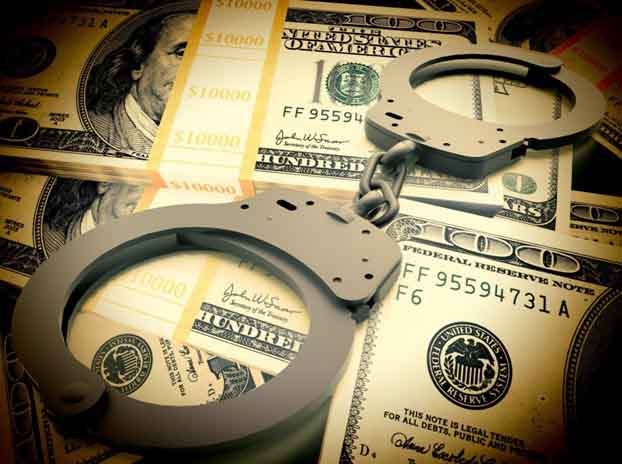White-Collar Crime Punishment: Harsh or Lenient?
Legal experts have signaled that, over the past decades, the punishments for federal crimes have seen a significant increase in severity (far greater than what was meted out in the past) and even more so in fraud and money laundering cases.
The sentences for individuals arrested and convicted of white-collar crimes are established using a particular set of rules in which points are added or eliminated depending on the various aspects of the defendant’s behavior and the crimes committed. In large part, the guidelines are driven by the amount of losses caused by the fraudulent activity, which can easily increase the punishment to what is given drug dealers and murderers. Although the sentencing guidelines are simply a recommendation, in most cases, judges try to maintain punishments within the recommended range, in order to avoid government appeals.
In one recent case,however, the difference between the sentencing recommendation and what prosecutors asked for was a startling 200 years! R. Allen Stanford, a Texas tycoon,found guilty of operating a multi-billion dollar Ponzi scheme and convicted on 13 counts of fraud and money laundering, was expecting to receive a sentence of 30 years to life in jail, according to the recommended guidelines (considering that his criminal activity affected thousands of victims throughout the United States and the Caribbean). Surprisingly, prosecutors asked for a sentence of 230 years in jail, arguing that the judge should impose separate sentences for each of the violations.
 This case fits perfectly in the pattern of recent white-collar crimes where defendants received punishments that have put them in jail for the rest of their lives. Everything indicates that, at the moment, white-collar crimes are seen as economic homicide, hence the federal prosecutors’ asking for such harsh sentences. It is also a fact that, after the recession, many judges have changed their attitude towards white-collar defendants, looking at them,not as harmless criminals who pose no real danger to society, but as violent criminals who deserve to pay for their actions.
This case fits perfectly in the pattern of recent white-collar crimes where defendants received punishments that have put them in jail for the rest of their lives. Everything indicates that, at the moment, white-collar crimes are seen as economic homicide, hence the federal prosecutors’ asking for such harsh sentences. It is also a fact that, after the recession, many judges have changed their attitude towards white-collar defendants, looking at them,not as harmless criminals who pose no real danger to society, but as violent criminals who deserve to pay for their actions.
According to Jed Rakoff, a New York federal judge and a member of the ABA Task Force, “the guidelines should be scrapped in their entirety,” since determining sentences for fraud cases doesn’t “fairly convey the reality of the crime or the criminal.” The judge recommended replacing the current calculation system based on points with another one that gives the judge the liberty to use a wide range of factors, none of which would automatically increase the sentence.
The question “Are punishments for white-collar criminals too harsh or too lenient?” has no simple answer, because there is no appropriate way to determine the sentence for each defendant, especially for those committing financial crimes. It is true that the impact of such criminal activity is far broader than burglaries or property crimes, but it is also much more difficult to grasp – it is probably harder for a rape victim to get on with her life than for an investor who has lost money in a Ponzi scheme.
White-collar crimes are among the hardest to defend. If you are being investigated for fraud, money laundering, tax evasion, or some other type of financial crime, it is crucial to remain silent and get legal counsel from a white-collar crime attorney. Call 773.908.9811 24/7 or fill out our case review form immediately to start building your case and have your charges reduced to the minimum.
About the Author
Andrew M. Weisberg is a criminal defense attorney in Chicago, Illinois. A former prosecutor in Cook County, Mr. Weisbergis a member of the Capital Litigation Trial Bar, an elite group of criminal attorneys who are certified by the Illinois Supreme Court to try death penalty cases. He is also a member of the Federal Trial Bar. Mr. Weisberg is a sole practitioner at the Law Offices of Andrew M. Weisberg.







 Blog Home
Blog Home 










